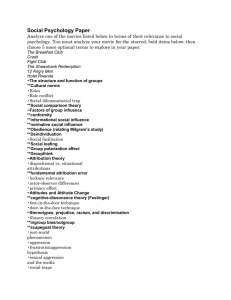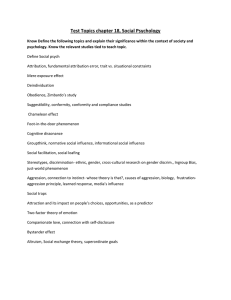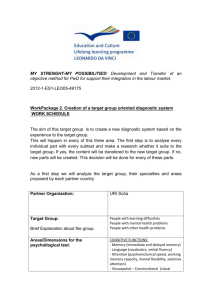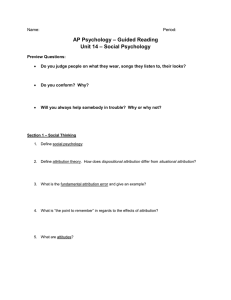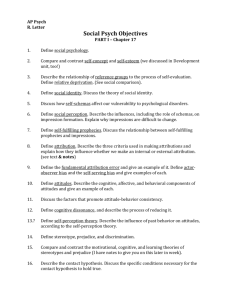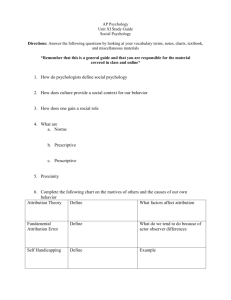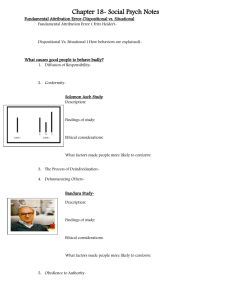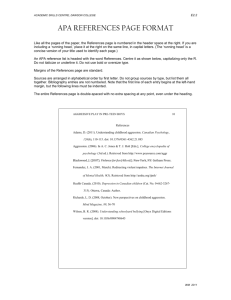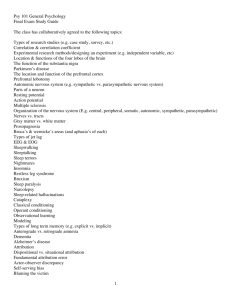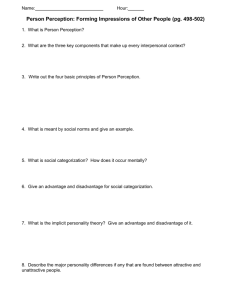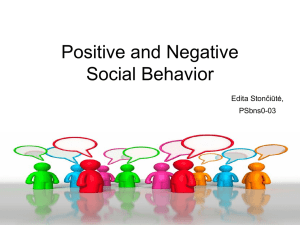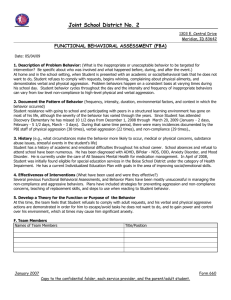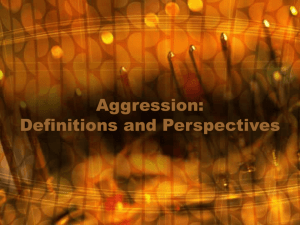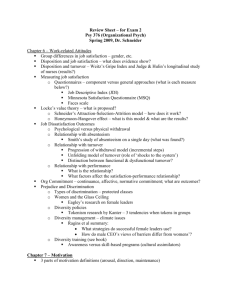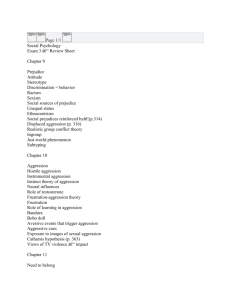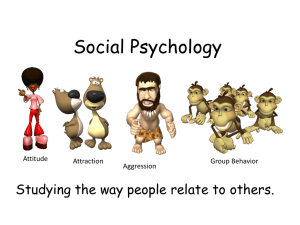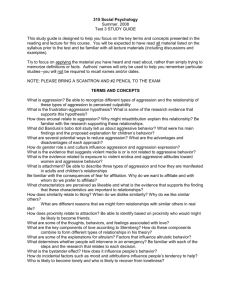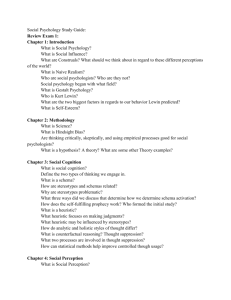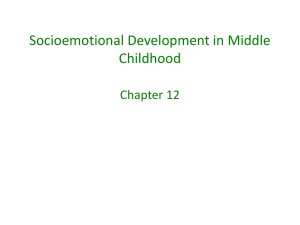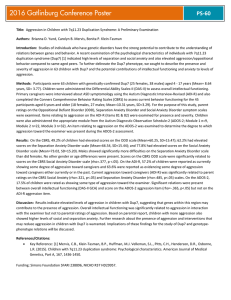File - MrGillPE.com
advertisement
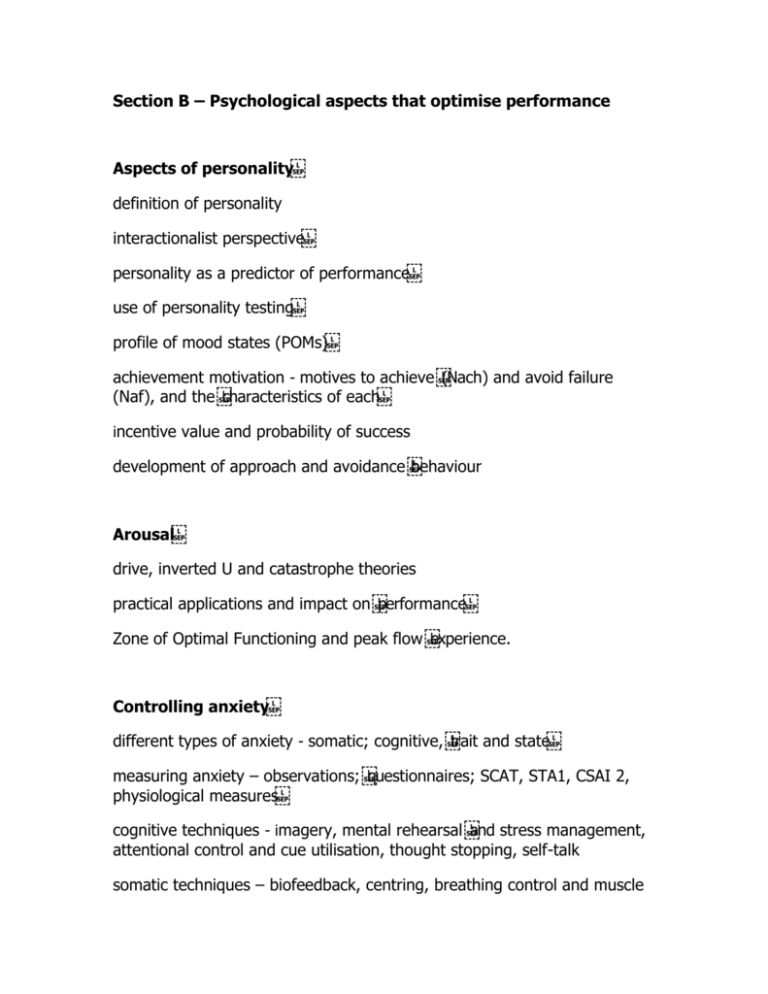
Section B – Psychological aspects that optimise performance Aspects of personality definition of personality interactionalist perspective personality as a predictor of performance use of personality testing profile of mood states (POMs) achievement motivation - motives to achieve (Nach) and avoid failure (Naf), and the characteristics of each incentive value and probability of success development of approach and avoidance behaviour Arousal drive, inverted U and catastrophe theories practical applications and impact on performance Zone of Optimal Functioning and peak flow experience. Controlling anxiety different types of anxiety - somatic; cognitive, trait and state measuring anxiety – observations; questionnaires; SCAT, STA1, CSAI 2, physiological measures cognitive techniques - imagery, mental rehearsal and stress management, attentional control and cue utilisation, thought stopping, self-talk somatic techniques – biofeedback, centring, breathing control and muscle relaxation goal-setting – characteristics of effective goal setting. Attitudes definitions and components of an attitude influences on formation of an attitude and influences on behaviour changing attitudes through cognitive dissonance and persuasive communication. Aggression definitions and types - channelled and nstrumental aggression, difference between aggression and assertion theories of aggression - instinct theory,frustration-aggression hypothesis, social learning theory and aggressive cue theory strategies to control aggression. Confidence self-confidence and self-efficacy - Bandura’smodel - determinants and changes inself-efficacy social facilitation and inhibition evaluation apprehension, Baron’s distraction - conflict theory, home field advantage strategies to eliminate the adverse effects of all the above on performance. Attribution theory Weiner’s model and its application to sporting situations link between attribution and task persistence attribution retraining, self serving bias learned helplessness, general and specific. Group success group formation and dynamics, Carron’s antecedents factors affecting cohesion – co-operation and co-ordination task and social cohesion Steiner’s model of potential and actual productivity, faulty group processes, strategies to overcome faulty processes Ringlemann effect and social loafing strategies to overcome social loafing. Leadership qualities associated with leaders types of leadership - autocratic, democratic, laissez faire effectiveness of leadership styles prescribed and emergent leaders Fiedler’s Contingency model - task and person orientated and Chelladurai’s multi-dimensional model.
